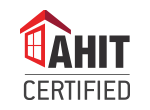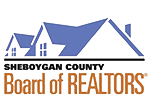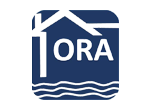HOME > FREQUENTLY ASKED QUESTIONS
Q: We found a home we want to buy. Why do we need a home inspection?
A: We check for things you might not notice when you’ve found a home you really like. Our licensed home inspector’s knowledge of home construction helps him identify problems that could be expensive to fix, and you don’t need any surprises when you could be making the biggest investment of your life. The inspection will point out the good things about a home, too, and can help you understand what maintenance it may require.
Q: Do I need to attend the inspection?
A: Although your attendance is not required, it is strongly encouraged. The inspector can answer any questions you may have immediately, educating you about the property in the process. What you’ll learn during the inspection will make it easier to read and understand our written report.
Q: I'm buying a home - when should I call for a home inspection?
A: Call to schedule your home inspection as soon as your offer to purchase the home is accepted. A home buyer should make their offer to purchase contingent upon the results of a home inspection by a Licensed Home Inspector. This provides protection for the buyer if the inspection uncovers problems he or she is unwilling to accept.
Q: Why can’t I inspect the home or property myself or have a friend do it?
A: A home inspection performed by a friend or family member of the home buyer is not recognized for contingent purchase offers. Additionally, a professional home inspector has no emotional attachment to the property, so he will approach the home inspection objectively. He has knowledge and expertise gained over the course of hundreds of home inspections. He thoroughly understands the elements of home construction, home maintenance, and how systems should function.
Q: I’m not selling my house. Why should I get a home inspection?
A: A home inspection can reveal problems that could be costly if not addressed promptly. It’s best to know about any problems sooner rather than later, so you can protect yourself financially, whether you stay in your home or decide to sell it in the future.
Q: How long will the home inspection take?
A: A typical home inspection takes about two to three hours. Older and larger homes, as well as commercial properties may take longer.
Q: What if the house fails inspection?
A: A house doesn’t pass or fail inspection. The home inspection provides information about the apparent condition of the property at the time of inspection. Our home inspector may find things that need to be repaired or replaced. The home inspection report provides information about the house that can help a home buyer make an educated decision about buying the property. A home owner or seller can use information gained during a home inspection to make decisions about repairs, home maintenance or improvements.
Q: My home inspection found some problems. What should I do?
A: Almost all houses will have some issues. You may decide to buy the property despite these issues once you have the information to help determine how much repairs might cost. A seller may be willing to adjust the price of a property to close the deal. Knowing the extent of any problems a property may have will help you decide how to move forward with confidence.
Q: If I have more questions after the inspection, can I call you?
A: Of course. The home inspection report provides a lot of information. If you don’t understand something in the report, or have questions you didn’t think to ask during the inspection, please contact us. We’re here to help.
A: We check for things you might not notice when you’ve found a home you really like. Our licensed home inspector’s knowledge of home construction helps him identify problems that could be expensive to fix, and you don’t need any surprises when you could be making the biggest investment of your life. The inspection will point out the good things about a home, too, and can help you understand what maintenance it may require.
Q: Do I need to attend the inspection?
A: Although your attendance is not required, it is strongly encouraged. The inspector can answer any questions you may have immediately, educating you about the property in the process. What you’ll learn during the inspection will make it easier to read and understand our written report.
Q: I'm buying a home - when should I call for a home inspection?
A: Call to schedule your home inspection as soon as your offer to purchase the home is accepted. A home buyer should make their offer to purchase contingent upon the results of a home inspection by a Licensed Home Inspector. This provides protection for the buyer if the inspection uncovers problems he or she is unwilling to accept.
Q: Why can’t I inspect the home or property myself or have a friend do it?
A: A home inspection performed by a friend or family member of the home buyer is not recognized for contingent purchase offers. Additionally, a professional home inspector has no emotional attachment to the property, so he will approach the home inspection objectively. He has knowledge and expertise gained over the course of hundreds of home inspections. He thoroughly understands the elements of home construction, home maintenance, and how systems should function.
Q: I’m not selling my house. Why should I get a home inspection?
A: A home inspection can reveal problems that could be costly if not addressed promptly. It’s best to know about any problems sooner rather than later, so you can protect yourself financially, whether you stay in your home or decide to sell it in the future.
Q: How long will the home inspection take?
A: A typical home inspection takes about two to three hours. Older and larger homes, as well as commercial properties may take longer.
Q: What if the house fails inspection?
A: A house doesn’t pass or fail inspection. The home inspection provides information about the apparent condition of the property at the time of inspection. Our home inspector may find things that need to be repaired or replaced. The home inspection report provides information about the house that can help a home buyer make an educated decision about buying the property. A home owner or seller can use information gained during a home inspection to make decisions about repairs, home maintenance or improvements.
Q: My home inspection found some problems. What should I do?
A: Almost all houses will have some issues. You may decide to buy the property despite these issues once you have the information to help determine how much repairs might cost. A seller may be willing to adjust the price of a property to close the deal. Knowing the extent of any problems a property may have will help you decide how to move forward with confidence.
Q: If I have more questions after the inspection, can I call you?
A: Of course. The home inspection report provides a lot of information. If you don’t understand something in the report, or have questions you didn’t think to ask during the inspection, please contact us. We’re here to help.
Q: What is radon, and why should I care?
A: Radon is an odorless gas released during the breakdown of naturally occurring uranium in soil, which follows natural crevices and seeps into home basements. Radon is present in many areas in Wisconsin, so testing is recommended for every home. According to the United States Environmental Protection Agency, radon is the second most frequent cause of lung cancer, after cigarette smoking.
Q: Why should I pay for a Radon inspection?
A: It’s best to know if a house has high levels of radon, not after you’ve bought it, but before, so you can make an informed purchasing decision. You might be able to negotiate a credit for the cost of installing a radon mitigation system as part of closing the deal.
A: Radon is an odorless gas released during the breakdown of naturally occurring uranium in soil, which follows natural crevices and seeps into home basements. Radon is present in many areas in Wisconsin, so testing is recommended for every home. According to the United States Environmental Protection Agency, radon is the second most frequent cause of lung cancer, after cigarette smoking.
Q: Why should I pay for a Radon inspection?
A: It’s best to know if a house has high levels of radon, not after you’ve bought it, but before, so you can make an informed purchasing decision. You might be able to negotiate a credit for the cost of installing a radon mitigation system as part of closing the deal.









